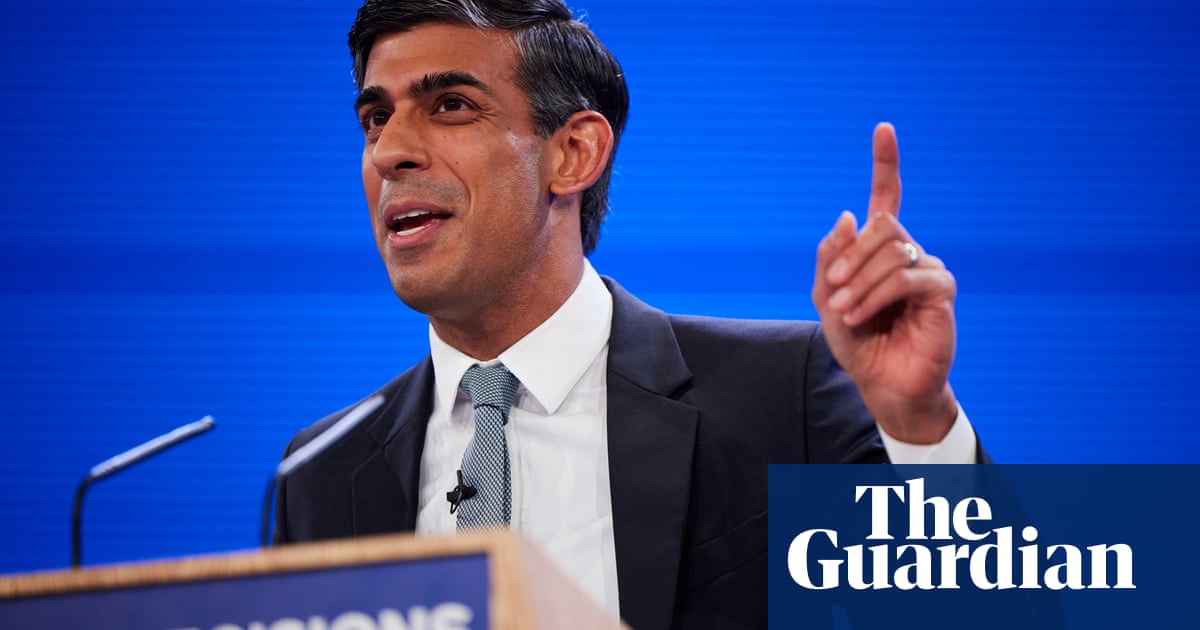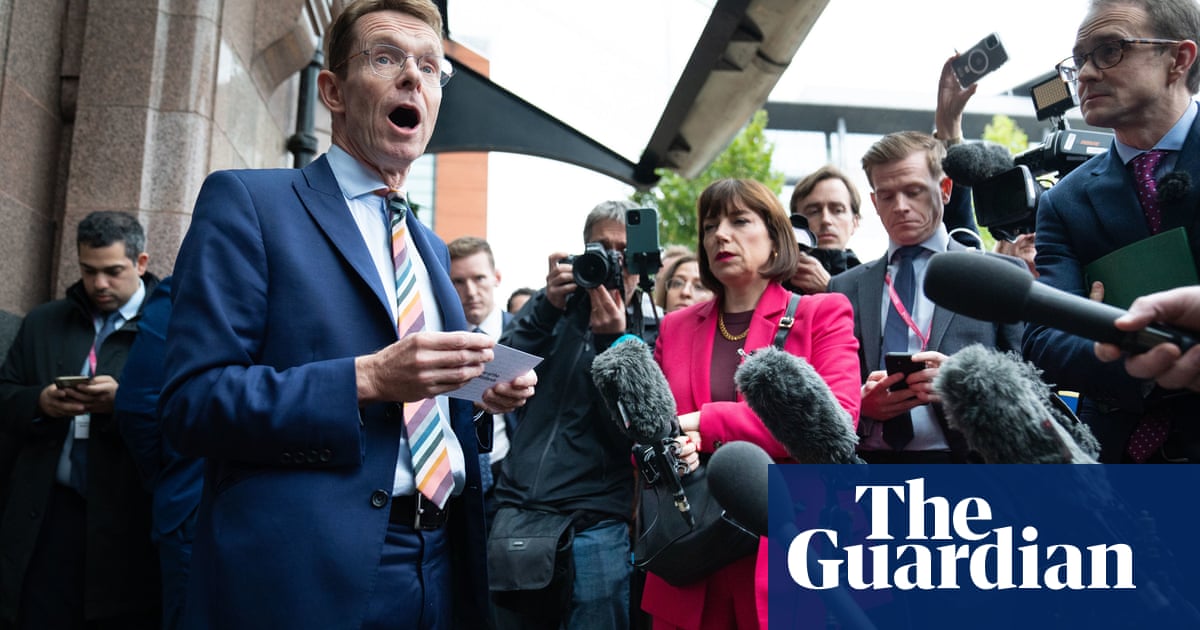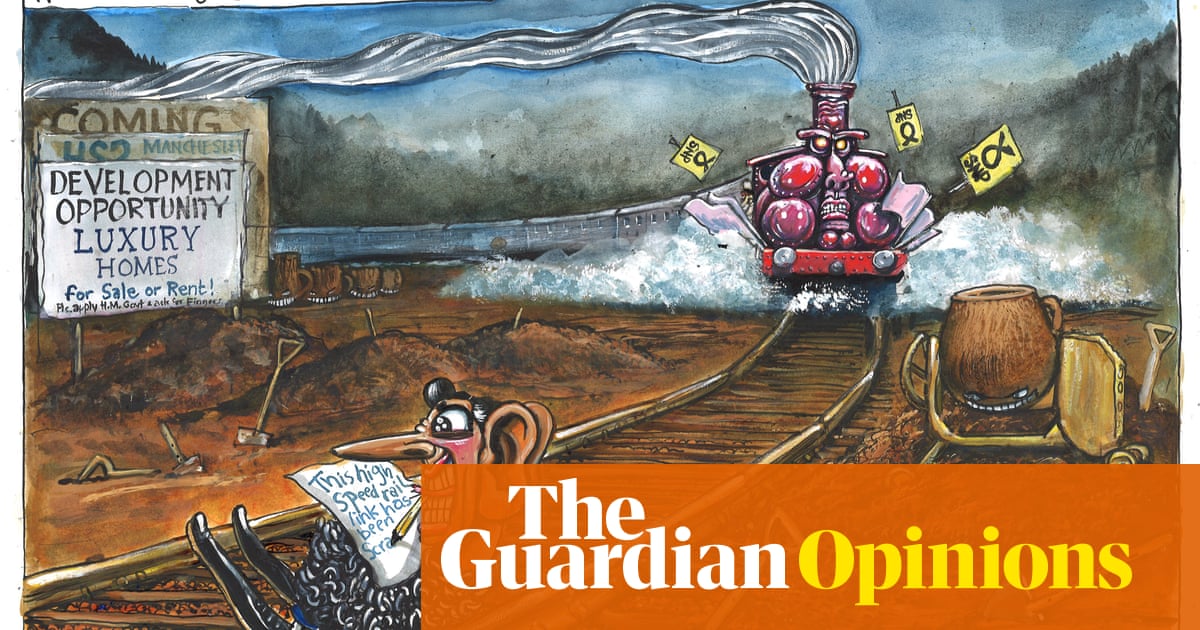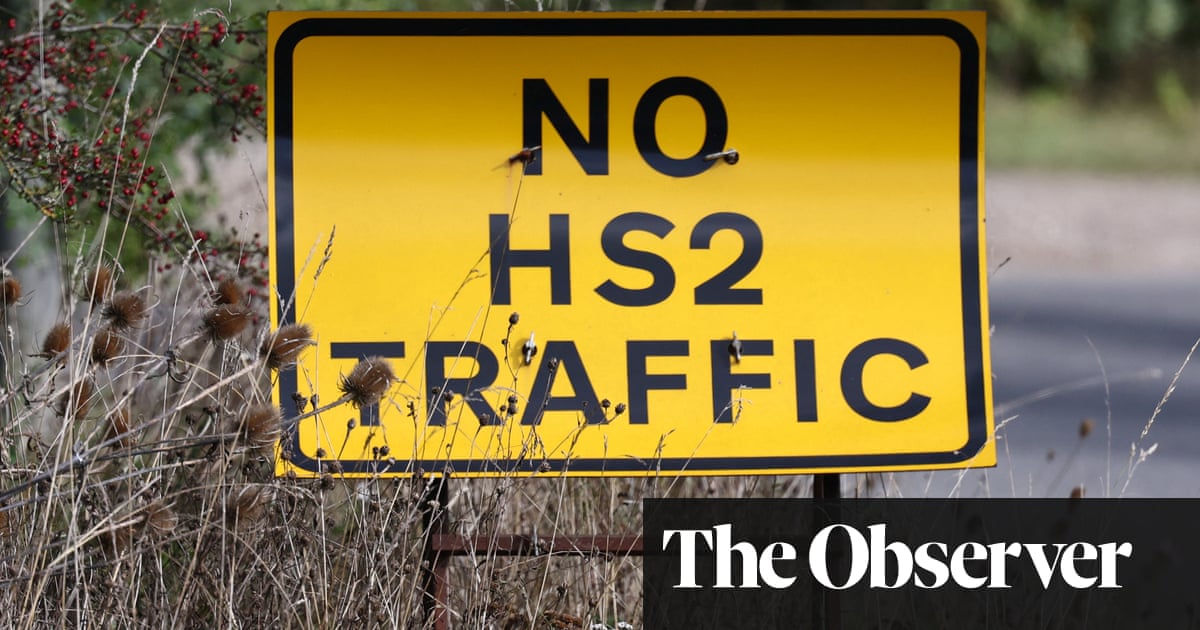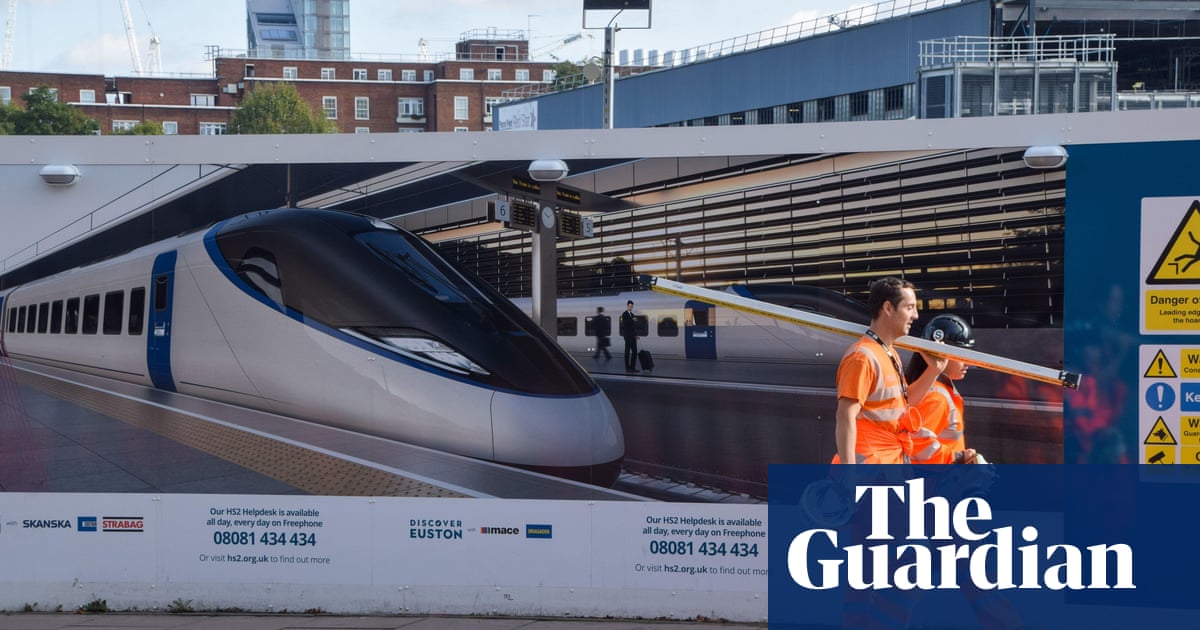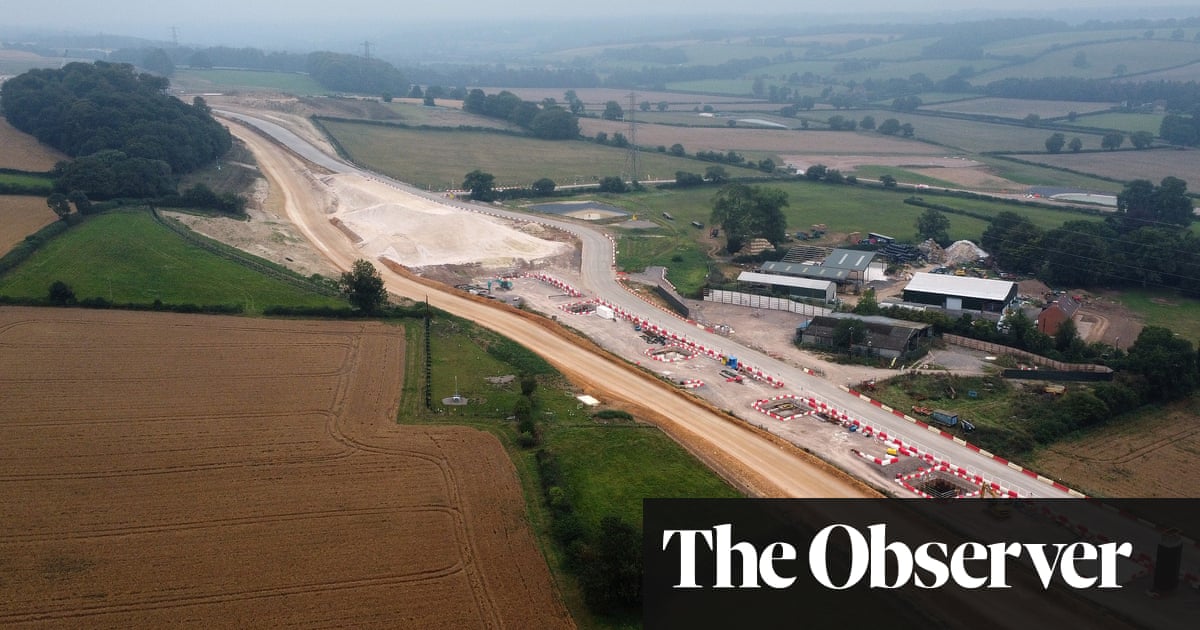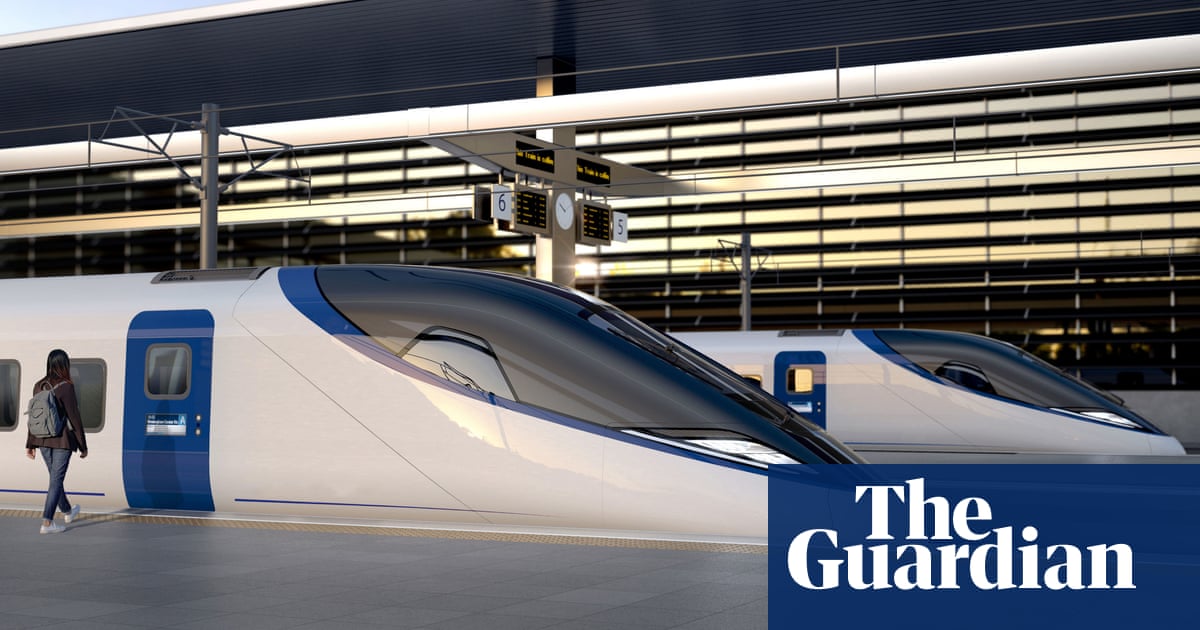
It was on Halloween almost 10 years ago that MPs voted to spend £37.5bn on building a high-speed railway line from London to Birmingham, with spurs to Manchester and Leeds. Three hundred and fifty voted aye and 34 against.
Rishi Sunak did not follow the party whip that day; he was still working for a hedge fund in California. Nor did Keir Starmer. It was his last day as director of public prosecutions, and two years before he would be elected as a Labour MP. David Cameron was the prime minister and claimed the new railway lines would be finished by 2033.
Fast-forward a decade and the only bit of HS2 likely to be completed by 2033 will be a 140-mile section between two inconveniently located stations outside central London and Birmingham.
Passengers arriving in the capital will be deposited at Old Oak Common, north of Wormwood Scrubs prison and six miles west of HS2’s original Euston terminus. Those going in the other direction will find themselves at Curzon Street, a 15-minute walk from Birmingham New Street, the Midlands’ main rail hub.
The eastern spur from Birmingham to Leeds has been scrapped – with land needed for the route remaining “safeguarded” (or blighted, depending on your view), should a future government choose to fund it.
The section from Birmingham to Manchester looks in serious peril, with reports that Sunak is planning to cancel before the Conservative party conference in – what are the chances? – Manchester starting next Sunday. And there’s a train strike then, of course.
Neither the government nor HS2, the company, is willing to put a price tag on building all the way to Manchester. This month a Treasury minister was called to the Commons to answer a question on the line’s cost and managed to answer it without any reference to money.
Every six months the government produces an update on HS2, which hardly anyone believes is accurate, not least because they are still based on 2019 prices. In June, phase 1 (London Old Oak Common to Birmingham Curzon Street) was forecasted to cost up to £45bn. For phase 2a (Curzon Street to Crewe) the estimated cost was £5bn-£7bn; and for phase 2b (the western leg to Manchester) it was £13bn-£19bn. This month, the Conservative peer Michael Lord told the House of Lords he had “reliable sources” who thought the final bill could be £150bn.
Asked on Sunday whether the government was committed to building HS2 in full to Manchester, Downing Street’s short reply stated the obvious and evaded the question: “The HS2 project is already well under way with spades in the ground, and our focus remains on delivering it.”
So what are the political risks for Sunak if he scraps the Manchester leg? Businesses overwhelmingly back the project. But polling by YouGov since 2019 has consistently found voter ambivalence. In May this year, 26% of respondents said they “neither support or oppose” HS2; 18% “tend to support”; and 16% “tend to oppose”. More people hate the idea than love it: 20% “strongly oppose”; and 8% “strongly support”.
The lack of full-bodied support among the public is perhaps unsurprising. Rail travel remains a minority pursuit in the UK, with more people commuting by bus than train. In England, the average person made just 15 train trips last year, with 82% of all journeys of 10 miles or more being taken by car.
What people definitely do not like, though, is the feeling that their area is being short-changed. HS2 was the leading investment project of George Osborne’s “northern powerhouse” concept and of Boris Johnson’s rebranding of the idea as “levelling up”.
If HS2 is scrapped, what will the north of England have to show for 13 years of Conservative rule? Some loud but fundamentally underpowered metro mayors, and a smattering of small-scale projects – a road upgrade here, a town centre beautification scheme there – that mean little outside those local areas.
If Starmer turns against it, what will be his alternative offer? HS2 was originally Labour’s idea, right at the end of the Brown era.
Those who oppose the project often suggest spending the money instead on improving local rail links, ignoring that fact that building a brand new line will free up the existing network for many more local services. Also, improving an existing line is not a quick fix. The upgrade of the 70-mile transpennine route from Manchester to York is still very far from complete despite being announced in 2011.
Some advocate building “northern powerhouse rail” instead – an east-west line from Liverpool to Hull. But the business case for that collapses without HS2, not least because it envisages sharing 50 miles of the high-speed track, including expensive tunnels from Manchester’s airport to its city centre.
At a time when government finances are under immense pressure, the temptation must be great to scrap such an expensive project – one described as “unachievable” by the infrastructure watchdog as recently as July. But before he does, Sunak must be able to say to the north: here is what we are going to do for you instead. Whether voters will believe him is another question.




